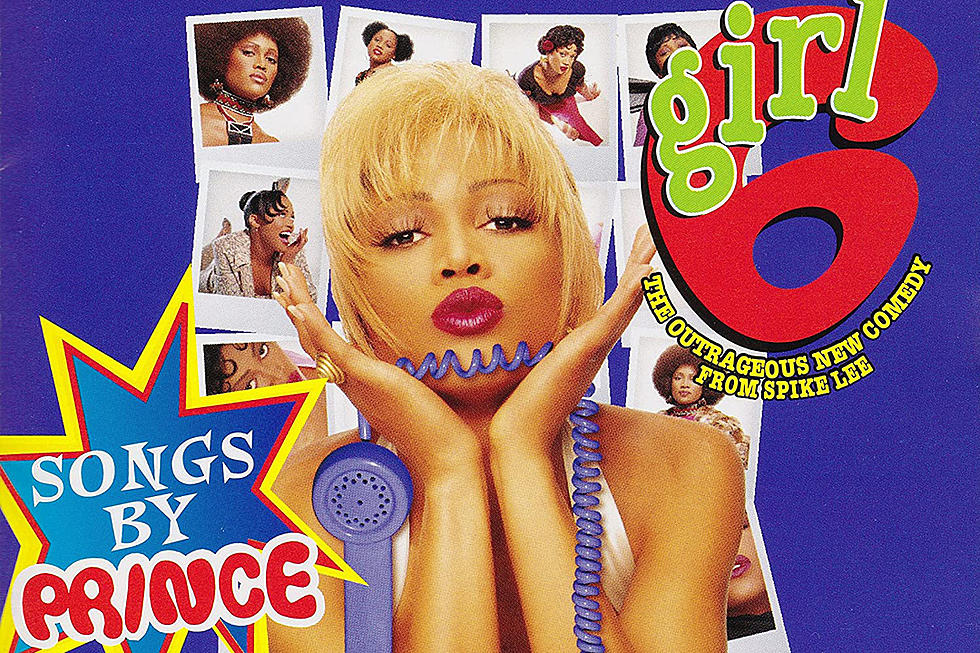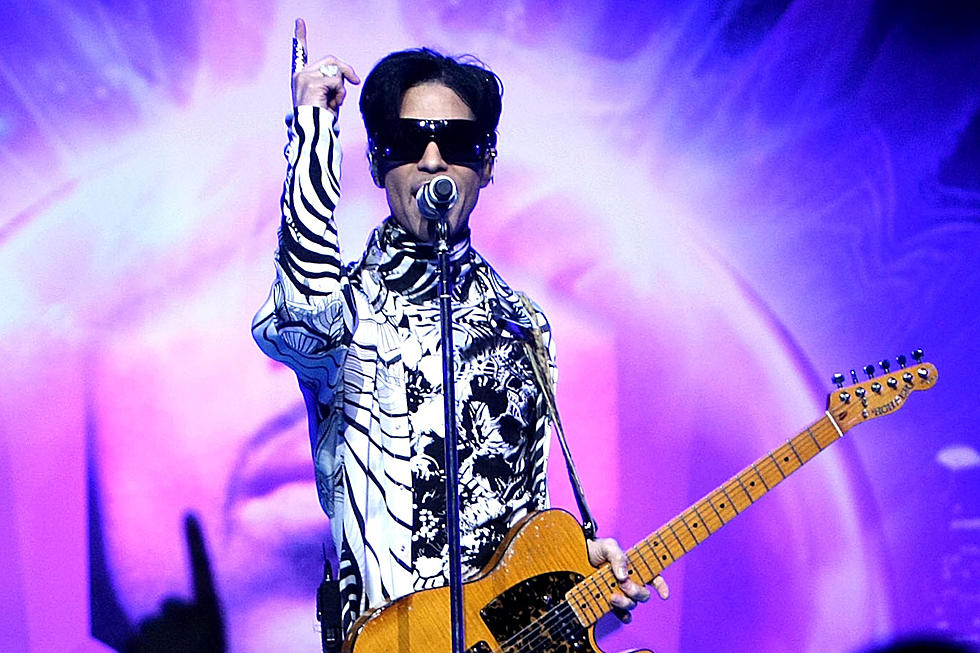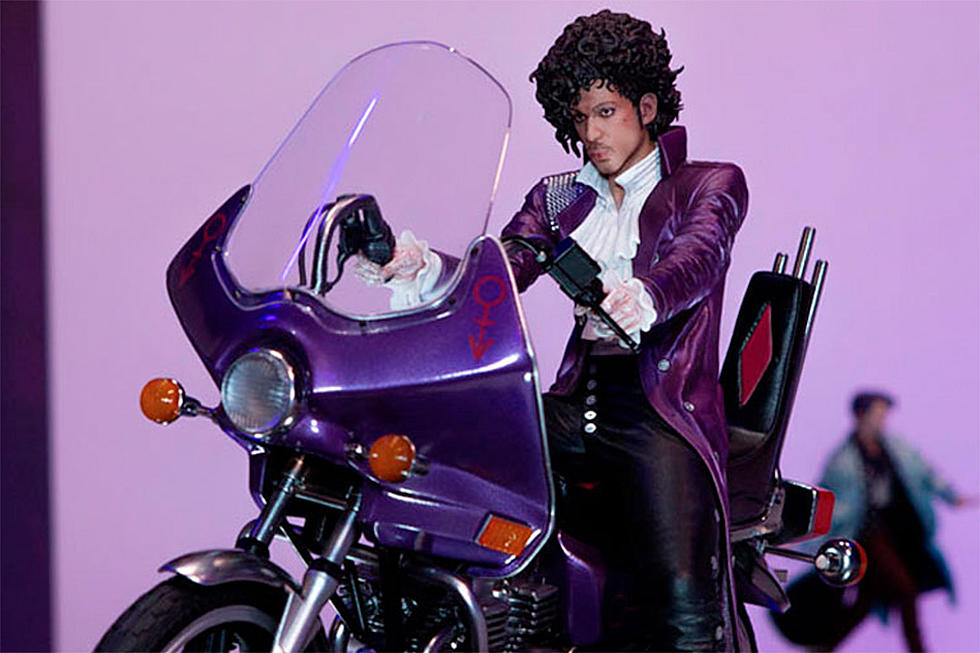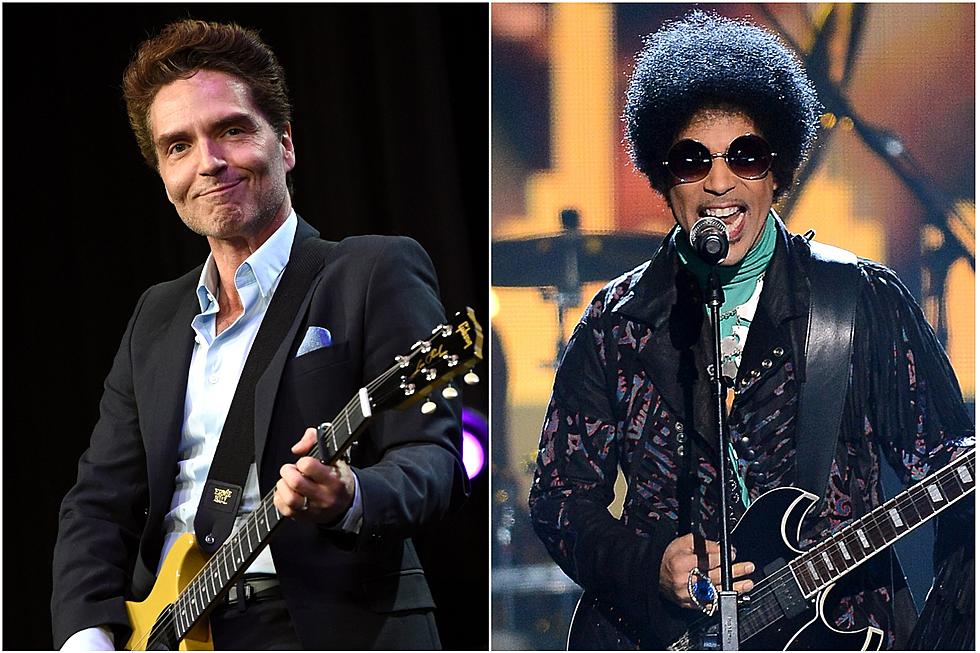
When Spike Lee Snagged Prince’s Back Catalog for ‘Girl 6’
Women, sex and fantasy.
Those three elements are the foundation of Spike Lee’s film, Girl 6. They are also common themes in Prince’s discography. So, getting the Purple One involved with the soundtrack was a no-brainer. Plus, the two had become friends.
But this was no Batman.
Rather than recruiting Prince to compose all new music inspired by the film, Lee pulled material from Prince’s back catalog (“Erotic City,” “Girls & Boys,” “Adore,” etc.), as well as songs by the artist’s protégés, Vanity 6, the Family and the New Power Generation. Though “Girl 6,” “She Spoke 2 Me” and “Don’t Talk 2 Strangers” were new to the public, the latter two had been recorded years earlier.
Released three days ahead of the film on March 19, 1996, the soundtrack was more of a compilation album than a creative supplement to the plot.
Because the artist had recorded most of the songs under his birth name, the album was attributed to Prince instead of his new name, the Love Symbol. The title track, credited to the New Power Generation, was the only single.
Later, in 2019, songwriter James Brandon filed a lawsuit against Lee and the Prince Estate, claiming “Girl 6” borrowed heavily from his composition. The outcome of the lawsuit has not been reported as of press time.
The Girl 6 soundtrack only reached No. 75 on the Billboard 200 chart.
Even if Prince had composed an album’s worth of new material, the movie didn’t provide a lot of compelling content for inspiration. It follows protagonist Judy (Theresa Randle), an aspiring actress who becomes a phone sex operator (“Girl 6”) to make ends meet. She soon becomes addicted to the work, which overshadows her dreams. The film weaves in dramatic and romantic subplots, and features appearances by Quentin Tarantino, Halle Berry and Madonna.
But the final product left reviewers cold.
“Spike Lee is a great director, but his strong point is not leading expeditions into the secret corners of the female psyche,” Roger Ebert wrote in the Chicago Sun-Times. “He doesn't really know and understand Girl 6, and he has no clear idea of the film's structure and purpose.”
Kenneth Turan of the Los Angeles Times felt the movie was a “first draft of a potentially interesting project.”
Audiences seemed to agree; the movie was not a box office success.
Prince’s music could have been used more effectively in the film. Without a separate musical score, Lee had to rely on the superstar’s songs to carry the transitions between the scenes. As a result, he used even more songs than are on the soundtrack, including “Housequake,” “Nothing Compares 2 U,” “Sign O’ the Times” and “4 the Tears in Your Eyes.”
It’s overload, but Prince was more diplomatic when Lee asked his opinion.
“Some [songs] worked stronger than others, but overall, musically, I didn’t know what to expect,” he said in an interview with Spike Lee for Interview magazine. “I was pleasantly surprised and I like the film for the style in which you did it.”
Lee would more successfully incorporate Prince’s music into his 2018 film, BlacKkKlansman; the artist’s take on “Mary Don’t You Weep” plays during the end credits.
“I don’t care what nobody says,” Lee told Rolling Stone. “My brother Prince wanted me to have that song. For this film.”
Prince’s trust in Lee was apparent. He was especially moved by the filmmaker’s use of “How Come U Don’t Call Me Anymore” in Girl 6.
“It forced me to put that song back into our set,” he told Lee. “I said I would never play it again because I used to think I couldn’t do it better than I did with my band, the Revolution. But your film gave me newfound respect for the music.”
Every Prince Album Ranked
More From KSSM-FM










